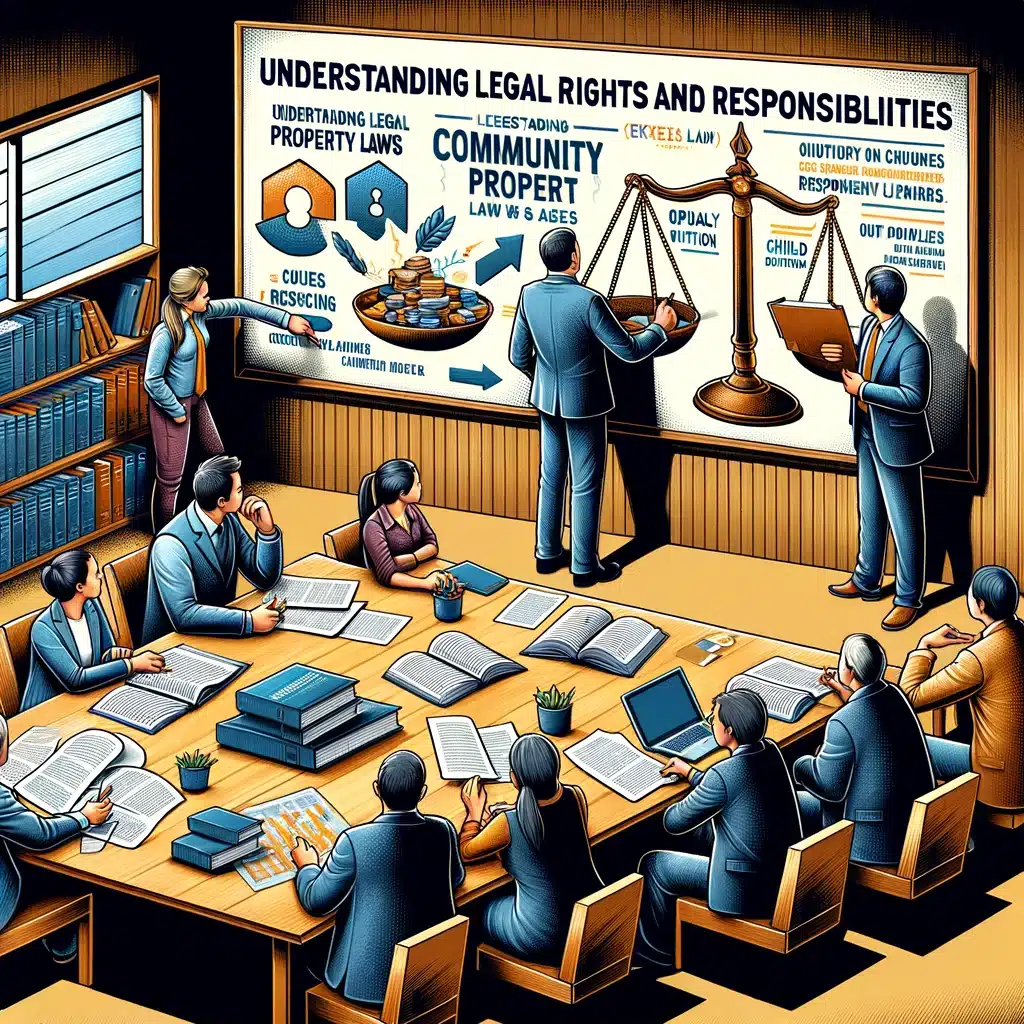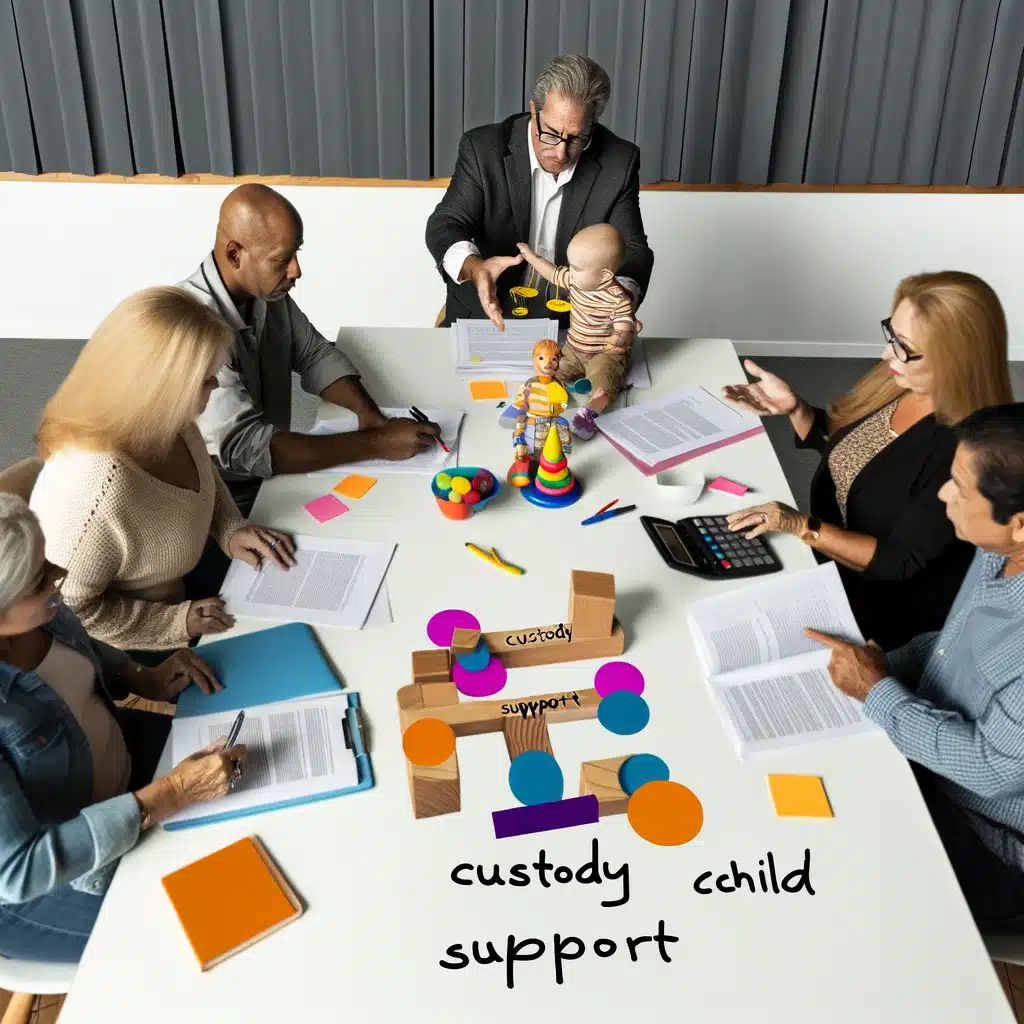
Maximizing your success in a divorce begins with knowledge. Understand Texas law and your rights. Each decision impacts the outcome significantly. Let’s navigate this complex journey together, ensuring clarity and strategy at every step. Let’s explore maximizing your success in a divorce: what to do (and what not to do).
The Journey Through Divorce – Not a Solo Adventure!
Imagine setting off on a road trip through the wild terrains of Texas. You’ve got your map, your snacks, and a playlist full of your favorite tunes. Suddenly, you’re hit with a flat tire – divorce! Not exactly the pit stop you planned, right?
Here’s where the fun begins with maximizing your success in a divorce: what to do (and what not to do)
This isn’t just any guide; it’s your survival kit to maximizing your success in a divorce. Why stick around? Well, we’re about to dive deep into the heart of Texas law, uncovering secrets that could turn your divorce from a nightmare into a strategic game of chess. From dodging common pitfalls to financial planning post-divorce, we’ve got you covered.
So, why keep reading?
Simple: Knowledge is power, especially in Texas divorces. And who knows, by the end of this journey, you might just be ready to hit the road again, this time with the wind firmly at your back.
Understanding Legal Rights and Responsibilities
In Texas, divorce laws dictate proceedings. Knowledge is your shield and sword. Familiarize yourself with community property laws. Assets acquired during marriage are typically divided equally. Exceptions exist, so understanding specifics is vital. Child custody decisions are based on the child’s best interests. Grasping these principles early sets a solid foundation for your case.

Selecting the Right Divorce Lawyer
Your lawyer is your guide through this labyrinth. Choose someone experienced in Texas family law. They should align with your goals and communication style. Ask about their strategy and track record. Remember, the right lawyer influences the journey and outcome.
Financial Planning and Asset Division
Finances significantly impact divorce outcomes. Create a comprehensive inventory of all assets and debts. Understand which are considered community property versus separate. Budget for post-divorce life early. It’s crucial for long-term stability. Seek advice on dividing retirement accounts without unnecessary penalties.
|
Consideration |
Action |
|
Inventory of Assets and Debts |
List all assets (bank accounts, properties, etc.) and debts. |
|
Community vs. Separate Property |
Determine which assets are shared and which are individual. |
|
Budget for Post-Divorce Life |
Draft a budget reflecting expected income and expenses after divorce. |
|
Asset Valuation |
Assess the value of all significant assets. |
|
Retirement Accounts |
Understand the rules for dividing retirement accounts without penalties. |
|
Tax Implications |
Consult with a tax professional to understand the impact of division. |
|
Legal and Professional Advice |
Seek guidance from financial and legal experts specialized in divorce. |

Child Custody and Support
Children’s well-being is paramount in Texas divorces. Familiarize yourself with standard custody arrangements. Understand how support calculations work. Always prioritize your children’s needs in negotiations. Effective co-parenting begins with respect and understanding.
Effective Communication Strategies
Open communication reduces misunderstandings and conflicts. Use clear, respectful language with your spouse. Avoid emotional confrontations. Document all interactions for legal purposes. Good communication can simplify the divorce process significantly.
The Emotional Journey of Divorce
Divorce is an emotional rollercoaster. Recognize the stages of grief involved. Seek professional support if needed. Self-care is not selfish; it’s essential. Letting emotions dictate decisions can derail your success. Stay focused and objective.
The Role of Mediation and Collaborative Divorce
Consider mediation or collaborative divorce to avoid court battles. These methods can save time, money, and stress. They promote amicable solutions and co-parenting relationships. However, they require openness and a willingness to compromise.

Avoiding Common Mistakes: maximizing your success in a divorce: what to do (and what not to do).
Many pitfalls can compromise your divorce outcome. Avoid rushing decisions or ignoring legal advice. Never hide assets or lie about finances. Such actions can backfire severely. Transparency and patience are your allies.
Building a Support System
Going through a divorce can feel isolating. Build a support network of friends, family, and professionals. Emotional support is as crucial as legal counsel. You don’t have to face this alone. A strong support system provides comfort and guidance.
Preparing for Life After Divorce
Post-divorce life is a new chapter. Plan for it. Set goals for your future and take steps towards them. Embrace the change as an opportunity for growth. Rebuilding life takes time and effort, but it’s worth it.

Navigating the Divorce Process
Understanding the steps of the divorce process reduces anxiety. From filing to finalization, each phase has its significance. Timelines can vary, so patience is essential. Stay informed and proactive throughout the process.
Protecting Privacy and Security
Privacy concerns escalate during divorce. Secure personal information and change passwords. Be mindful of what you share on social media. Privacy and security are paramount, especially in contentious divorces.
The Impact of Divorce on Children
The divorce’s impact on children can be profound. Shield them from conflict and legal discussions. Encourage open communication and reassure them of your love. Their well-being should guide your decisions.
Dealing with Alimony
Understanding alimony is crucial. Know how it’s calculated and what factors the court considers. Whether seeking or providing support, be realistic about financial needs. Legal advice is invaluable in navigating these waters.

Divorce and Taxes
Taxes can complicate divorce settlements. Understand the implications of asset division and alimony. Consult with a tax professional to avoid unexpected liabilities. Proper planning can prevent future financial headaches.
Wrapping up maximizing your success in a divorce: what to do (and what not to do)
Maximizing your success in a divorce demands strategy, patience, and knowledge, especially under Texas law. Equip yourself with the right information and support. Remember, the decisions made now shape your future. Approach each step with thoughtfulness and resolve. Your success in navigating this challenging time lies in a balanced combination of legal wisdom, emotional strength, and proactive planning.
Crossing the Divorce Finish Line – With Style and Smarts!
Picture this: You started this journey feeling like a lost hiker in a Texas thunderstorm—wet, confused, and a tad scared. Now? You’re navigating the rugged divorce landscape like a seasoned cowboy, hat tipped against the sun, a confident smile playing on your lips.
We’ve traveled through the dusty trails of legal rights, dodged the cacti of financial pitfalls, and discovered oases of emotional well-being. You’ve learned the Texas two-step of communication and custody, and even how to lasso in that wild bull called ‘financial planning’.
So, what’s the take-home message about maximizing your success in a divorce: what to do (and what not to do)?
Strap on your boots and grab that map (or this article). With the right preparation and attitude, you can turn what feels like a messy divorce into a journey of self-discovery and empowerment.
Remember, every Texan sunset marks the end of one day and the promise of another. So here’s to new beginnings, to fresh starts, and to you—riding off into your new life, sunset blazing, full of newfound knowledge and confidence. Yeehaw!

Other Related Articles:
- From Papers to Peace: Your Texan Divorce Roadmap
- Understanding the Texas Estate Taxes: Is Your Estate Subject To Taxation?
- Life After Divorce: Is it Possible to Find Love Again?
- Plan Carefully When You Are Going to Leave Your Spouse
- How to plan for a divorce: Advice for everyday Texans
- Dividing a Pension in Your Divorce
- Divorce and Finances Split: Navigating the Legal Landscape in Texas
- Untangling the Texan Knot: A Guide to Splitting in Texas!
- Splitting Assets in Texas? Read This First!
- Conquer Divorce Challenges: Texas Expert Advice
Frequently Asked Questions:
What not to do during a divorce in Texas?
Avoid making impulsive decisions, hiding assets, or involving children in conflicts. Always consult with your lawyer before actions.
What is a wife entitled to in a divorce in Texas?
In Texas, spouses are typically entitled to an equitable share of the community property but not the separate property owned before marriage or acquired by gift or inheritance.
What are the rules for divorce in Texas?
Texas requires a minimum 60-day waiting period from filing to finalize. Grounds vary from no-fault to reasons like adultery, cruelty, or abandonment.
How divorce changes a woman?
Divorce can bring significant emotional, financial, and social changes. Women may experience shifts in identity, increased responsibilities, or new beginnings.
Bryan Fagan, a native of Atascocita, Texas, is a dedicated family law attorney inspired by John Grisham’s “The Pelican Brief.” He is the first lawyer in his family, which includes two adopted brothers. Bryan’s commitment to family is personal and professional; he cared for his grandmother with Alzheimer’s while completing his degree and attended the South Texas College of Law at night.
Married with three children, Bryan’s personal experiences enrich his understanding of family dynamics, which is central to his legal practice. He specializes in family law, offering innovative and efficient legal services. A certified member of the College of the State Bar of Texas, Bryan is part of an elite group of legal professionals committed to ongoing education and high-level expertise.
His legal practice covers divorce, custody disputes, property disputes, adoption, paternity, and mediation. Bryan is also experienced in drafting marital property agreements. He leads a team dedicated to complex family law cases and protecting families from false CPS allegations.
Based in Houston, Bryan is active in the Houston Family Law Sector of the Houston Bar Association and various family law groups in Texas. His deep understanding of family values and his professional dedication make him a compassionate advocate for families navigating Texas family law.




